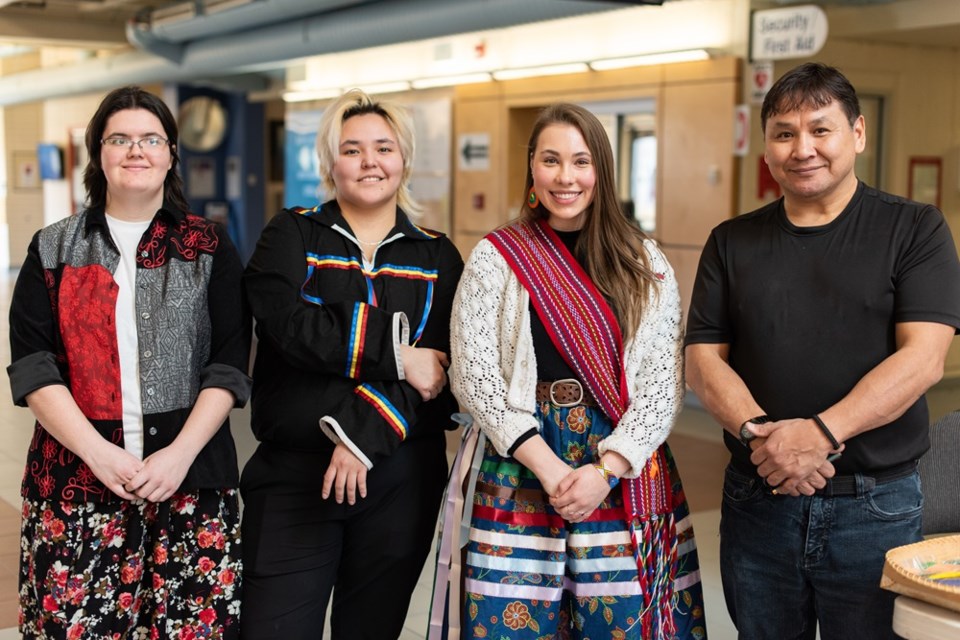The College of New Caledonia has launched a new Indigenous education strategy.
lhk’enazdulkat (pronounced ken-naz-dul-kat) was introduced Monday at the Prince George campus, as representatives of the college gathered with partners from First Nations, Inuit and Métis communities and other organizations gathered to learn more.
“We have much to do to create a better future for all Indigenous students. This starts with an acknowledgement of harm and a demonstrable commitment to change,” said CNC president Cindy Heitman. “Through meaningful conversations and hard work with First Nations and many voices, lhk’enazdulkat will help us to make changes so Indigenous students can thrive in any path that they choose.”
lhk’enazdulkat is a five-year strategy that supports truth, reconciliation, decolonization, and Indigenization at CNC for all students and staff.
“lhk’enazdulkat provides a clear path forward for the College to address the needs and aspirations of Indigenous students and communities. We are very grateful to all who participated over the past year. Our collaboration with communities showed the common vision for all: that students succeed in their education and career goals,” said Ben Berland, co-chair of the Yinka Dene Council which includes representatives from the advisory committees of each CNC campus.
For the next five years, lhk’enazdulkat and its related changes will seek to help students:
- Feel that they belong in the CNC community and are safe and welcome;
- Believe in themselves and their unique talents and gifts; and
- Realize their potential and achieve their dreams.
lk’enazdulkat spotlights three key areas on which Indigenous communities and students want the college to focus to increase learner success and work towards systemic change:
- Connect: CNC commits to building and strengthening relationships with Indigenous communities not just through dialogue but by recruiting more students to the College and hiring more Indigenous employees to increase representation at CNC;
- Understand: CNC commits to increasing cultural understanding by improving cultural awareness and humility for all employees. We will also take steps towards reconciliation by working with communities to meet their education and training needs, thereby helping achieve their hopes and aspirations of healthy, thriving, and vibrant communities; and
- Empower: Most importantly, communities want their students to succeed in their educational and career goals. This involves providing access into programs; Indigenizing academic curriculum, delivery and assessment; and providing relevant and culturally appropriate supports throughout their learning journey.
The first year of the plan will see CNC focusing on launching an Indigenous understanding and learning series and hosting a People of this Place seminar. CNC will also work toward more proactive outreach to potential Indigenous applicants, more responsive services for Indigenous students, and greater collaboration with school districts to engage Indigenous youth earlier in their high school studies.
The full plan is available at https://cnc.bc.ca/about/initiatives/indigenous-education-plan



